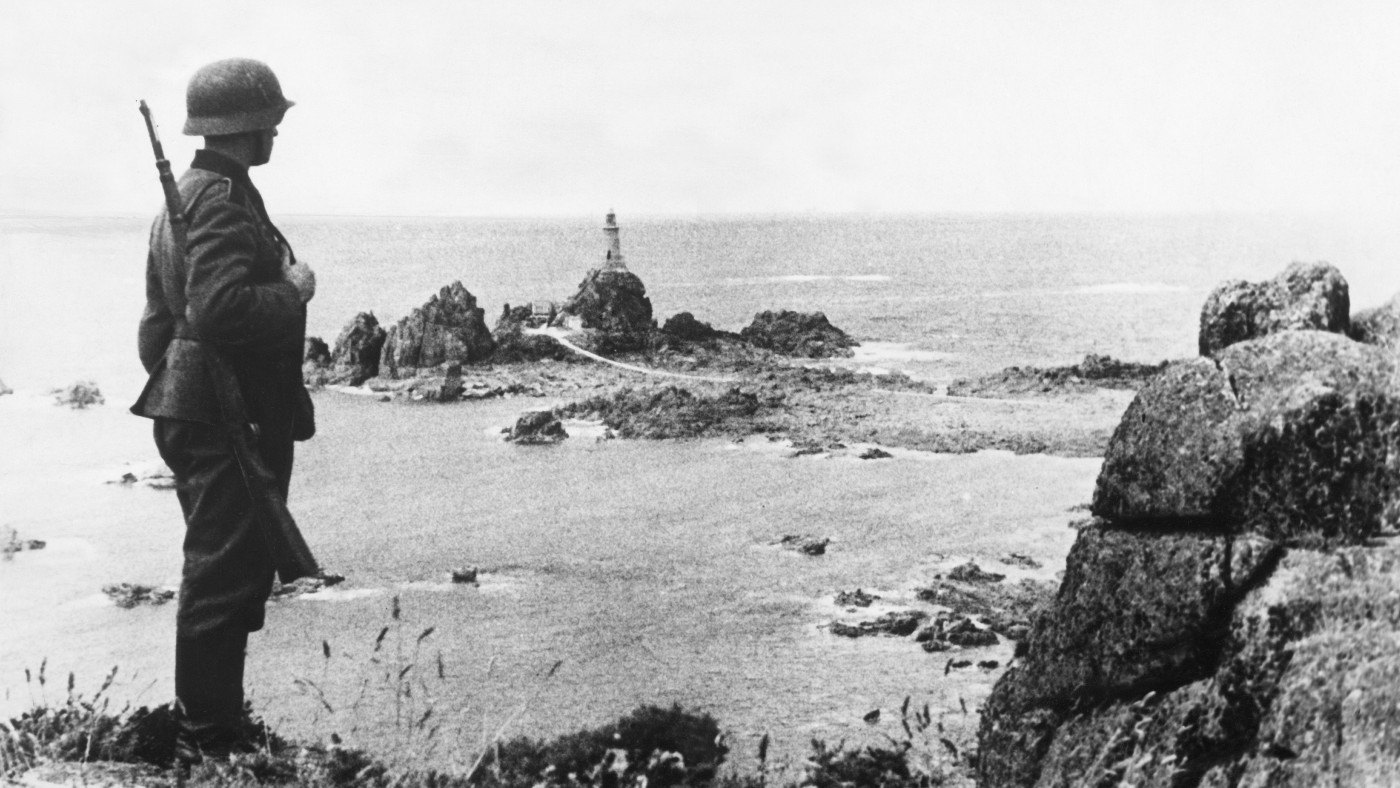Alderney and the inquiry into Nazi camps on British soil
An official government review will attempt to establish how many people were killed on the Channel Island

A free daily email with the biggest news stories of the day – and the best features from TheWeek.com
You are now subscribed
Your newsletter sign-up was successful
A new government inquiry will review evidence to establish exactly how many people died during the Nazi occupation of Alderney.
Lord Pickles, the UK’s special envoy for post-Holocaust issues, will lead the inquiry into the full extent of the horrors committed in the concentration camps established on the Channel Island. The hope is it will end the “considerable speculation” about how many prisoners were murdered there, the government said.
What took place on Alderney was one of the “darkest episodes in British history”, said The Observer, and the number of deaths has long been contested, with thousands thought to have been buried on the island.
The Week
Escape your echo chamber. Get the facts behind the news, plus analysis from multiple perspectives.

Sign up for The Week's Free Newsletters
From our morning news briefing to a weekly Good News Newsletter, get the best of The Week delivered directly to your inbox.
From our morning news briefing to a weekly Good News Newsletter, get the best of The Week delivered directly to your inbox.
An international panel of experts will now review the available evidence and consider the “most accurate number” of victims for the government inquiry. Lord Pickles said that the “numbers matter because the truth matters” and the review will “put to rest conspiracy theories” about what happened in that period.
What took place on Alderney?
Alderney, a three-mile-long island just 10 miles off the coast of France, fell under Nazi rule with the rest of the Channel Islands when the German army occupied France in 1940. Almost all residents on the island “decided to evacuate their homes in June 1940” and did not return until the end of 1945, said The New European. When the German occupiers arrived, they operated with “impunity” on the island, “building labour camps and SS-run concentration camps” – the only such camps established on British soil.
Unlike other camps on German-occupied mainland Europe, Alderney “was not the site of an extermination camp”, wrote Dominic Lawson in the Daily Mail. Instead, prisoners were killed through Vernichtung durch Arbeit, “extermination through work”. Those sick or unable to work “were sent to extermination camps in Occupied Europe”, said The Observer.
Many prisoners would have died being “forced to build a vast network of fortifications”, which made up Adolf Hitler’s so-called “Atlantic wall”, preparing for an expected invasion from Britain, said The New European.
A free daily email with the biggest news stories of the day – and the best features from TheWeek.com
While it has never been completely clear what kind of prisoners were held on Alderney, a 2020 archaeological study suggested the concentration camp called Sylt “primarily held prisoners from Soviet territories, as well as French Jews”, said Smithsonian Magazine. However, as many as “27 different nationalities were thought to have been brought to the island”, The New European said.
What happened after the war?
After the Second World War ended and Britain retook control of the Channel Islands, the government “declared in a memorandum that all the Alderney inmates were Soviet citizens” and so left it to the Soviet government to “decide the fate of the SS men” who ran the camps, said Lawson.
The senior officers in charge on the island were “arrested by the British authorities” but were “never tried”, said The Observer. An investigation carried out in the 1980s by The Observer found that the British government’s claim the Kommandant of Alderney, Major Carl Hoffman, and the head of the Sylt camp, Hauptsturmführer Maximilian List, were handed over to the Russians “was untrue”. Both had in fact been held in Britain after the war and were then released to West Germany, where the former “died peacefully in 1974” and the latter lived “well into the 1970s”.
Since then, the British government has “never published an official death toll” from the Nazi occupation, while a 1946 report by intelligence officer Captain Theodore Pantcheff “was buried” and remained “locked away for decades and appears to have been lost”, said The Sunday Times.
What is the inquiry trying to establish?
Pantcheff concentrated on “identifiable graves rather than than on bodies disposed of in mass pits” so his estimated death toll is “likely to have been an underestimate”, wrote The Sunday Times. His “tally of eight Jewish graves” could be significantly inaccurate, and the death toll “could be in the thousands”.
The new inquiry is trying to establish the exact number of people who died on Alderney, and a “key question” will be the number of Jews who perished.
Professor Anthony Glees, the intelligence expert who advised Margaret Thatcher’s war crimes inquiry, told The Observer that the inquiry “needed to delve more widely into the events” on Alderney, and “uncover the truth” about why those responsible were not brought to justice by the British authorities.
Pickles said the review will analyse accounts from Alderney “hidden in plain sight” in archives around the world to uncover the truth, The Washington Post reported. The findings of the inquiry are due to be published in March 2024.
Richard Windsor is a freelance writer for The Week Digital. He began his journalism career writing about politics and sport while studying at the University of Southampton. He then worked across various football publications before specialising in cycling for almost nine years, covering major races including the Tour de France and interviewing some of the sport’s top riders. He led Cycling Weekly’s digital platforms as editor for seven of those years, helping to transform the publication into the UK’s largest cycling website. He now works as a freelance writer, editor and consultant.